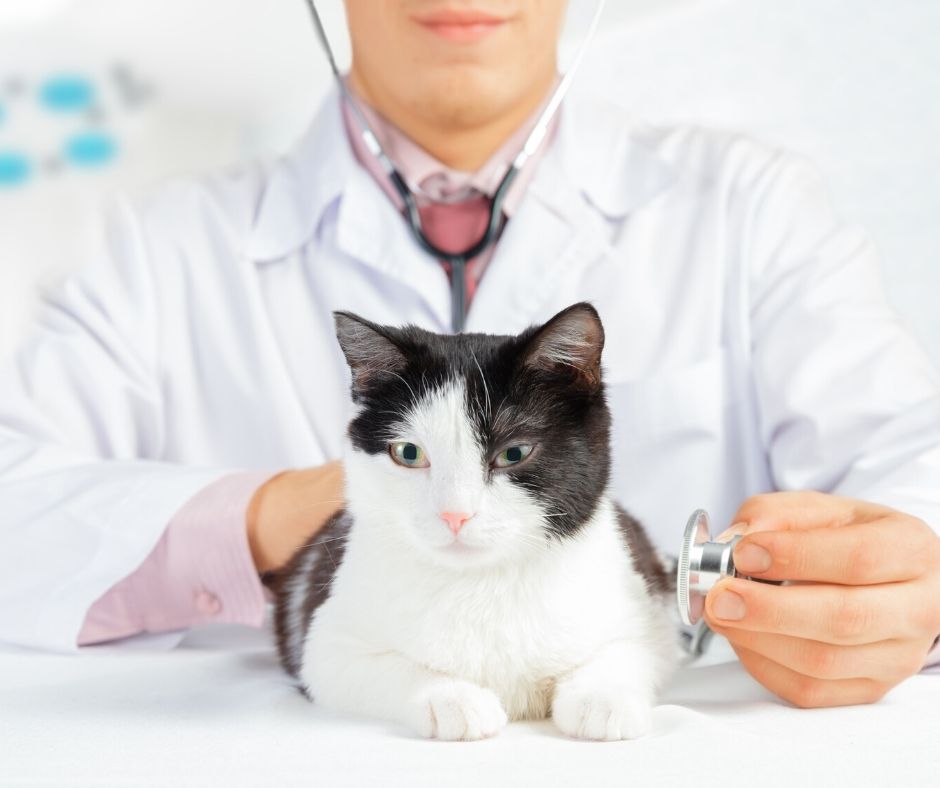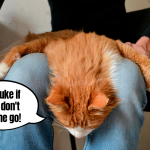In order to ensure our cat’s health, it’s a good idea for us to do some regular tests. These are divided into mandatory tests, which we should remember as the Guardians of a purring Friend, and additional tests to help us assess her health even more closely. In our article, we will try to bring both of these closer together.
We have seen for ourselves how important cat health prophylaxis is. First, on the example of our first fluffy friend – Luis, who struggled with kidney disease, and then Figo, who had heart problems. Let’s remember that only regular tests can detect the disease at an early stage, which increases the chances of a complete cure for the purr or prolonging his life actually by these proverbs of seven cat lives. This is particularly important as cats will only let you know if they’re in very bad shape.
The list of tests must have
We have created a list of obligatory tests to take care of your cat’s health, based on the knowledge of two experts: veterinarian Dr. Agnieszka Neski-Suszyńska and Justyna Fronc, the owner of Pazur Kennel, who already appeared in our posts.
In cats under 10 years old once every 12 months should be performed:
- a clinical examination in which the vet should check the condition of your cat’s dentition, cleanliness of its ears, look at its coat, skin and paws;
- a basic urine test – this allows for the rapid detection of many diseases. Urine is taken at home. This can be done by placing a clean litter tray with no gravel in it and then pouring urine out of it, or by using a cat catching method using a container. There are also special non-absorbent plastic pellets available which are poured into the empty litter tray instead of gravel. And let’s not be afraid to take urine through a bladder puncture by an experienced veterinarian – our Luis has had to take it regularly and believe that it’s not painful for your cat and we’re sure the sample isn’t contaminated;
- abdominal ultrasound – even small lesions in the organs can be detected;
- blood tests, which include morphology and basic biochemistry, can detect a variety of conditions early on. In the case of cats over 7 years old, attention should also be paid to thyroid hormone;
- blood pressure measurement – necessary for purriers older than seven years of age; mature cats are particularly prone to develop kidney failure which can be detected by this test.
For pets over 10 years old, the above examinations should be carried out once every six months. In addition, such older cats should also be screened once a year for x-rays to assess their organs, as well as for heart echo and ophthalmology.
List of additional examinations
Additional tests are usually ordered by a veterinarian due to the animal’s predisposition to the conditions or diseases in question. Among the most popular are:
- to perform a more detailed blood test to exclude or confirm the infection in question;
- FIV/FeLV test – it is necessary for outgoing cats that have not been vaccinated for these diseases before; moreover, it is worth to do it if you take your cat from the street; FIV and FeLV are not only a threat to the health but also to the life of our cats;
- faecal examination – to rule out parasite infestation.
Breeds with a predisposition to certain ailments
Some cat breeds are particularly vulnerable to certain diseases. Some of them are presented in the table:
| Cat breed | Frequent diseases | Research to be done |
| cat Scottish hanging | kidney polycythemia | ultrasound |
| Devon rex | skin lesions | mainly looking at the hair and skin |
| Siamese cat | femoral flaking | x-ray |
| British short hair,Maine coon, Ragdoll, | hypertrophic cardiomyopathy (myocardial thickening) | heart echo |
| Exotic, Persian, British long hair/British short hairPersian, Exotic, British short hair, British long hair | Kidney polycythemia (PKD1/AD-PKD) | ultrasound |
| Scottish hanging,British Short-haired | Osteochondroplasia | X-rays |
Visit to the vet
If you want to avoid stress in your cat’s friend, and to reduce your anxiety or stress (which is probably also given to your pet), it’s a good idea to prepare yourself well for a visit to the vet.
It’s a good idea to gather all the information you need about your pet, all the symptoms that are bothering you, and it’s best to save them for yourself so that you don’t forget about anything under stress. Your vet will probably ask questions about your cat’s activity and wellbeing, how much water he or she drinks, how often he or she is treated and what consistency or colour his or her faeces are, what he or she is fed, how much water he or she drinks during the day. If your kitten is sick she’ll ask when the disturbing symptoms have occurred and what exactly they are. Think about what you want to ask her in advance, what are her worrisome symptoms, and even make a video in advance with the behaviour of the cat that is worried.
It’s worth having your cat’s health book with you – this will make it much easier to keep track of recent diseases and treatments. We took with us the tests that the cat had to perform, especially if we changed the vet.
If you’re planning on taking a blood test, your cat should be on an empty stomach. In our experience, it’s best to bring your cat to the vet who is fasting because you never know if you will need to take blood. The hours in the morning are convenient as the last meal is given to your cat in the evening of the previous day.
If you suspect or want your cat to have her urine taken for tests it’s also a good idea to keep her bladder full. Unfortunately we know how difficult it is to take the cat’s litter tray overnight to make the morning visit result in effective urination, but it is worth doing this once and for all.
For such visits it’s worth taking the cat in the cat carrier it’s used to – it’s always less stress for our Friend. There’s something soft inside that smells like home. You can use a ready-made, waterproof underlay in case of an unexpected cat’s accident. If you have a kitten who is very anxious, a good trick is to cover the cat carrier with a blanket or a material that covers it completely so that she doesn’t see what’s outside when she’s in the carrier. This has worked perfectly with us, including in transport.
Let’s not forget that as the Guardians of our cats, and clients of veterinary clinics, we have the right to ask the doctor to do all of the tests mentioned in the article, even if he does not do it himself. Other, very important elements are the control of the oral cavity, checking ears, eyes, claws and periorbital sinuses. It is worth asking your vet for this during your stay in the clinic. Of course, in consultation with the vet, we simply mean that we are not afraid to ask and have no inhibitions to require. We are the treasury of knowledge about our pet.
Cats are difficult patients hiding problems, famous for their unspecific symptoms and strange reactions. Keeping them healthy is often a challenge. However, if our cat is regularly examined, we take care of its health prophylaxis and feed it the right way, then we have a good chance to spend several dozen wonderful years in its company. So you can see that the effort pays off.




